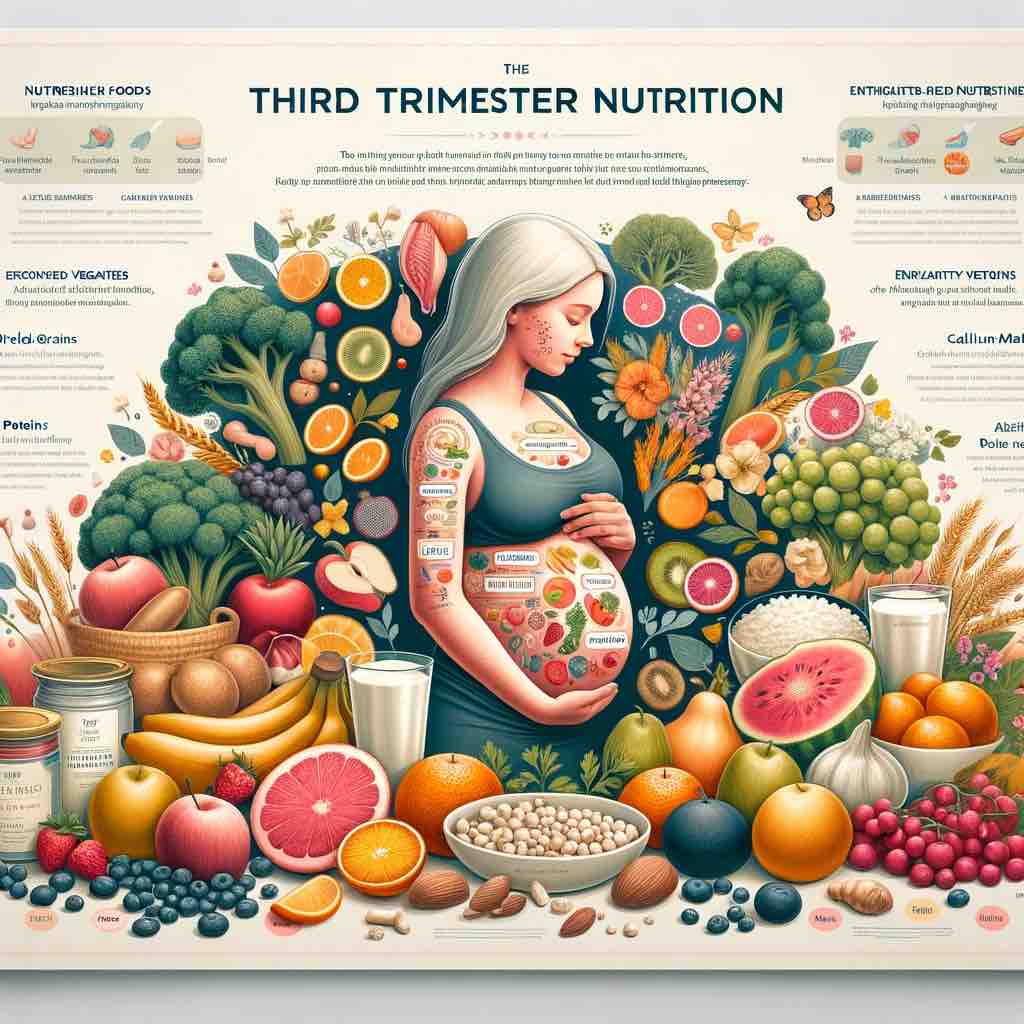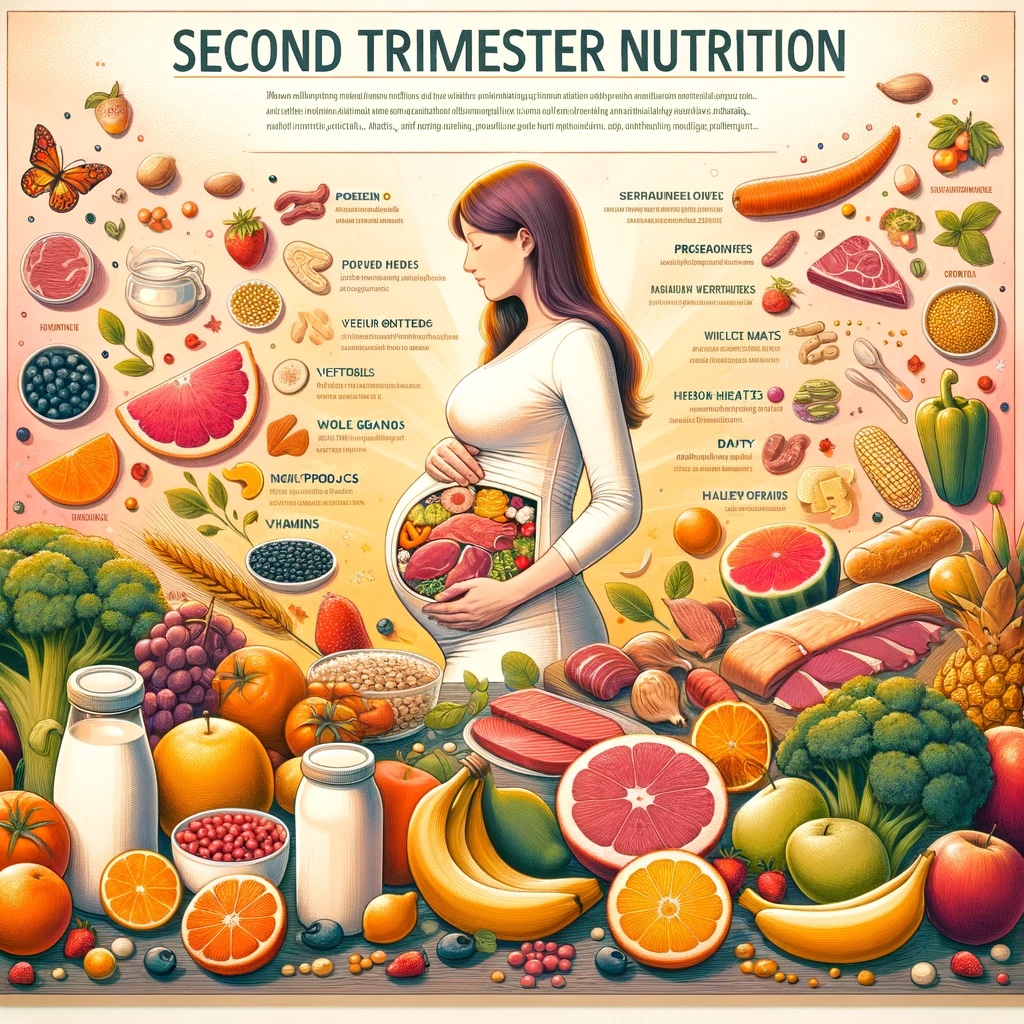
Pregnancy is a journey filled with joy, anticipation, and a fair share of nutritional puzzles. One nut that stands out as a miniature powerhouse for expectant mothers is the almond. Let’s crack open the shell and discover the top five benefits of almonds during pregnancy!
- A Nutritional Power Punch: Think of almonds as tiny nutritional superheroes. Each almond is packed with a blend of essential nutrients like monounsaturated fats, protein, fiber, vitamins (especially vitamin E), and minerals such as calcium, iron, and zinc. It’s like having a miniature army fighting to ensure you and your baby get a wide array of nutrients, crucial for both of your health. Swap out those less nutritious snacks for almonds and feel the difference!
- Energy and Protein – The Dynamic Duo: Pregnancy can feel like running a marathon, and you need the right fuel. Almonds are here to save the day! They provide that much-needed energy boost without the bulk. Plus, they bring a decent punch of protein to the table. This dynamic duo of energy and protein aids in the development and growth of your baby, and keeps you feeling empowered and capable to tackle the day. A handful of almonds can be your secret weapon against pregnancy fatigue.
- The Shield Against Developmental Problems: Almonds are rich in folic acid, a superhero nutrient for your developing baby. Folic acid is key in preventing neural tube defects and ensuring the proper development of your baby’s brain and spinal cord. It’s like giving your baby an invisible shield, guarding them right from the start.
- Building Baby’s Bony Fortress: Here’s a fun fact – almonds are teeming with calcium. This mineral is a building block for your baby’s bones. Including almonds in your diet is like laying the foundation for a strong bony fortress for your baby. This not only helps in the development of strong bones but also reduces the risk of fractures. It’s like ensuring your baby has a sturdy frame to grow on.
- Iron Woman to the Rescue: Iron deficiency is a common concern during pregnancy, but almonds are here to help. Rich in iron, they help in combating anemia and keeping your blood healthy. This means better oxygen supply for you and the baby, keeping you both vibrant and thriving. Consider almonds as your personal Iron Woman suit, keeping you strong and resilient.
Incorporating almonds into your diet can be both fun and creative. Whether it’s tossing them into your morning cereal, blending them into a smoothie, or simply snacking on them, almonds are versatile and delicious. Remember, while almonds are beneficial, moderation is key. So, go ahead, add that crunchy, nutty goodness to your pregnancy diet and enjoy the multitude of benefits it brings to you and your little one! 🌟🤰🥜
10 FAQs for “Almonds – 5 Benefits During Pregnancy”
- Can I eat almonds every day during pregnancy? Yes, you can eat almonds daily during pregnancy, but in moderation. A small handful (about 4-6 almonds) is typically a good amount.
- Are there any risks associated with eating almonds while pregnant? For most people, almonds are safe during pregnancy. However, if you have a nut allergy or are advised otherwise by your healthcare provider, you should avoid them.
- Do almonds help with pregnancy nausea? While almonds aren’t a cure for pregnancy nausea, their high protein and fiber content can help stabilize blood sugar levels, which may alleviate nausea for some women.
- Can eating almonds affect my baby’s health? Eating almonds can positively impact your baby’s health by providing essential nutrients for growth and development, but always consult with your healthcare provider for personalized advice.
- How do almonds contribute to fetal development? Almonds are rich in nutrients like folic acid, calcium, and iron, which are crucial for fetal brain development, bone growth, and preventing anemia.
- Is it better to eat raw or roasted almonds during pregnancy? Both raw and roasted almonds are beneficial. However, raw almonds may retain more nutrients, while roasted almonds can be easier to digest.
- Can almonds help with my energy levels during pregnancy? Yes, the protein and healthy fats in almonds can provide a sustained energy boost, which is helpful during pregnancy.
- How can almonds assist in managing pregnancy weight? Almonds can help manage pregnancy weight by providing a feeling of fullness and reducing the likelihood of overeating due to their fiber and protein content.
- Are almonds beneficial for all trimesters of pregnancy? Yes, almonds are beneficial throughout all trimesters, but your nutritional needs may vary, so it’s a good idea to discuss your diet with a healthcare provider.
- Can I replace my calcium supplements with almonds? While almonds are a good source of calcium, they may not provide enough to meet the increased demands of pregnancy on their own. Always consult with your healthcare provider regarding supplements.
Blog Tags:
Pregnancy Nutrition, Almonds Benefits, Healthy Snacks, Maternal Health, Fetal Development, Energy Boost, Iron-Rich Foods, Bone Health, Prenatal Care, Healthy Diet













